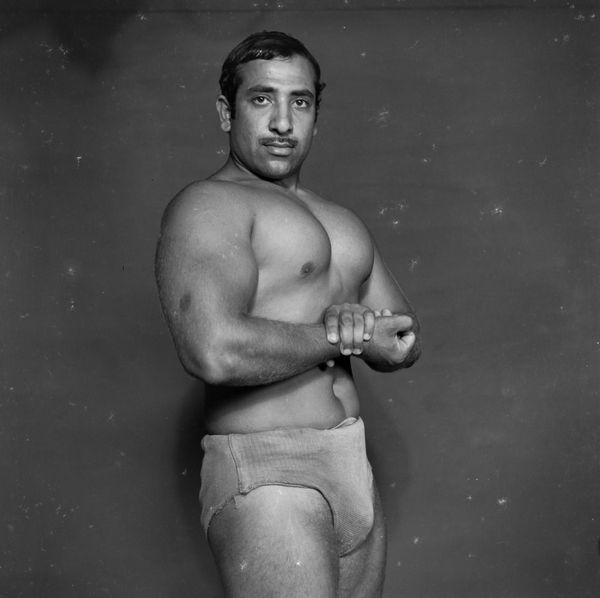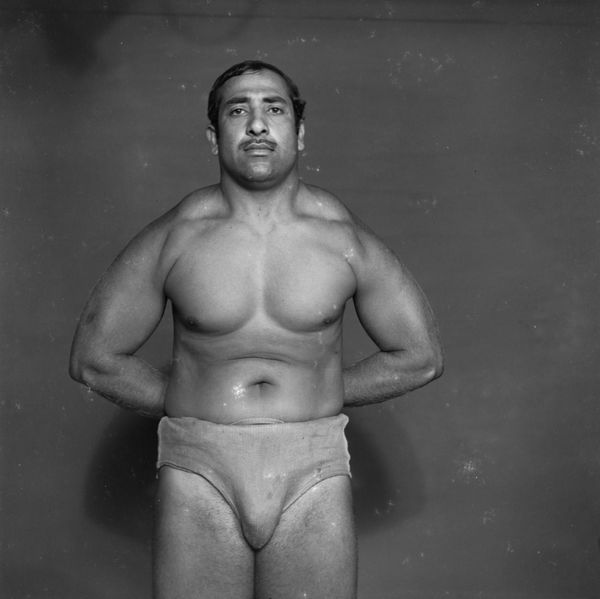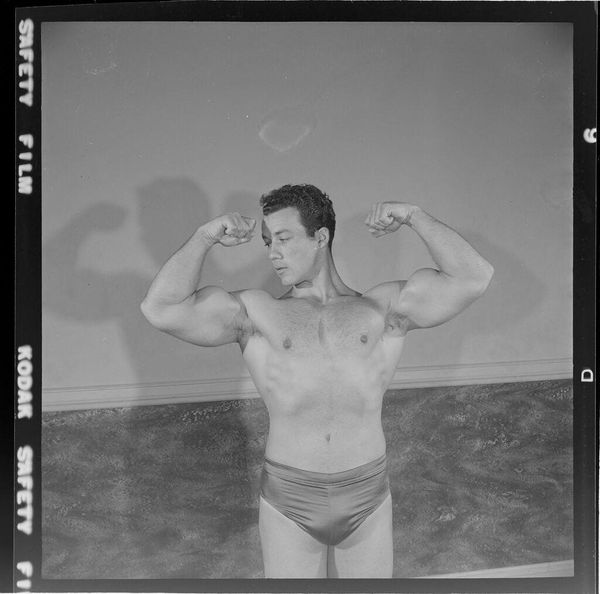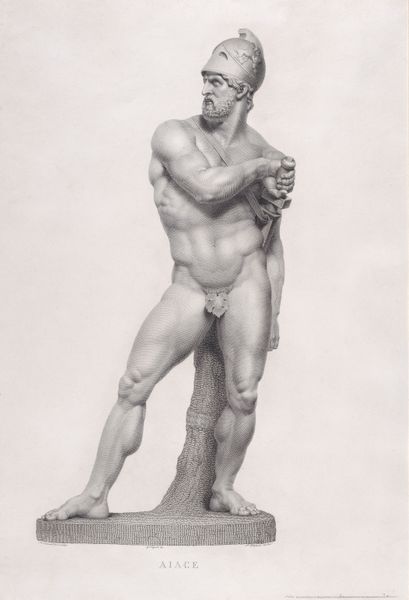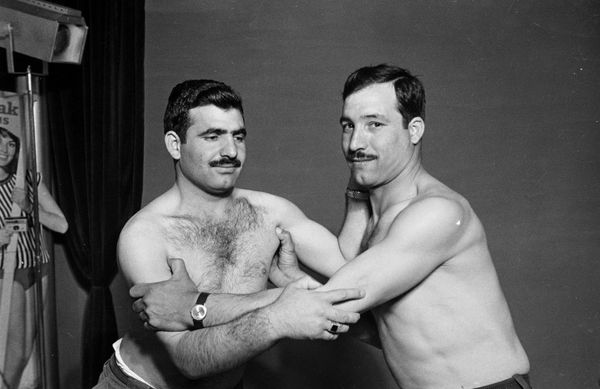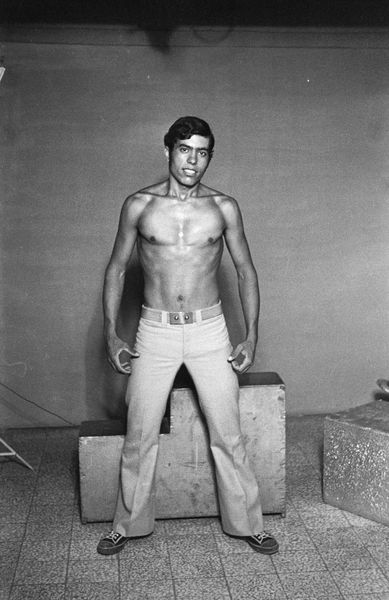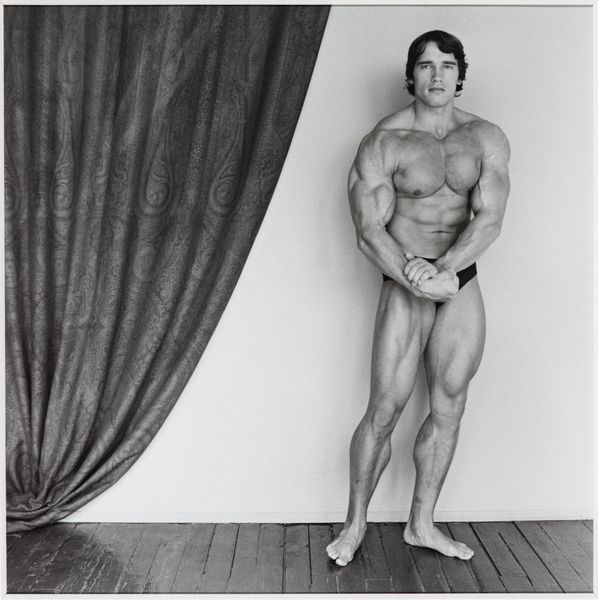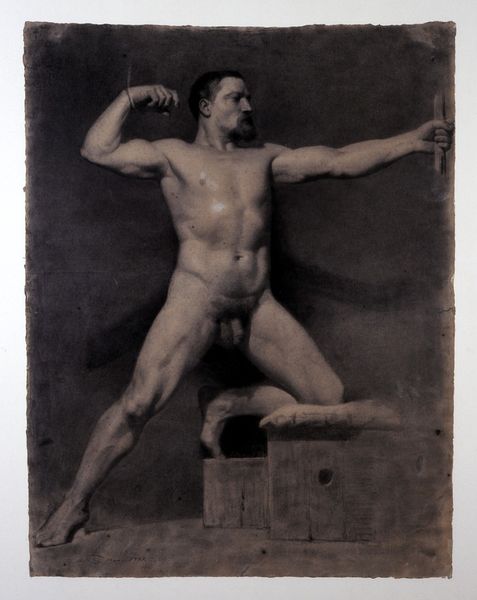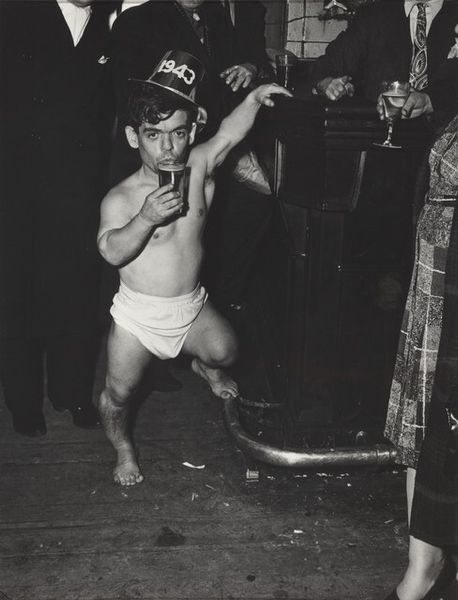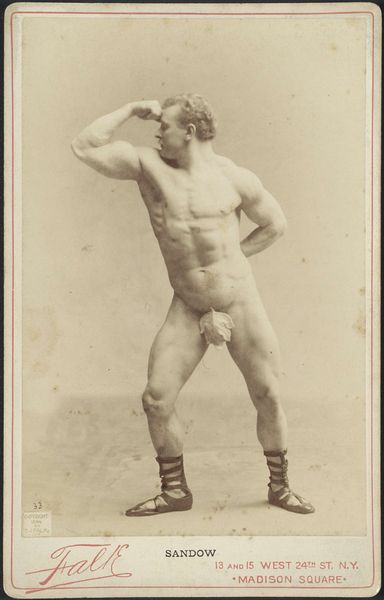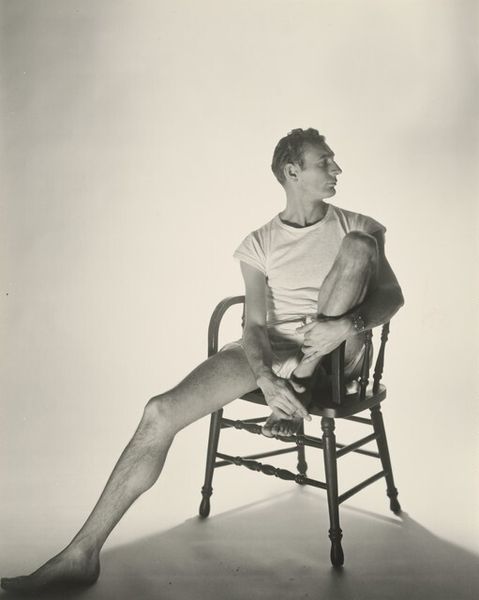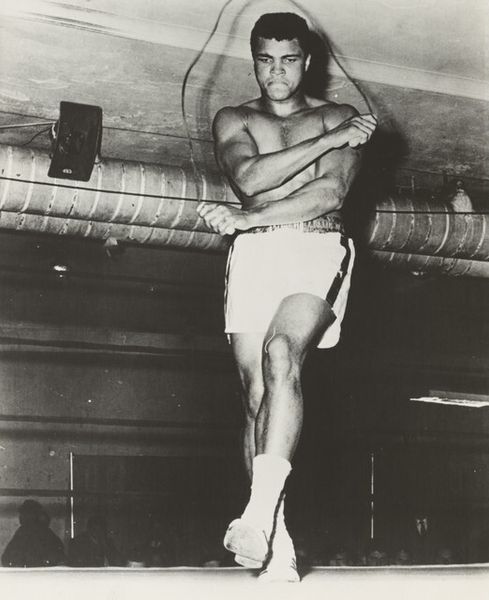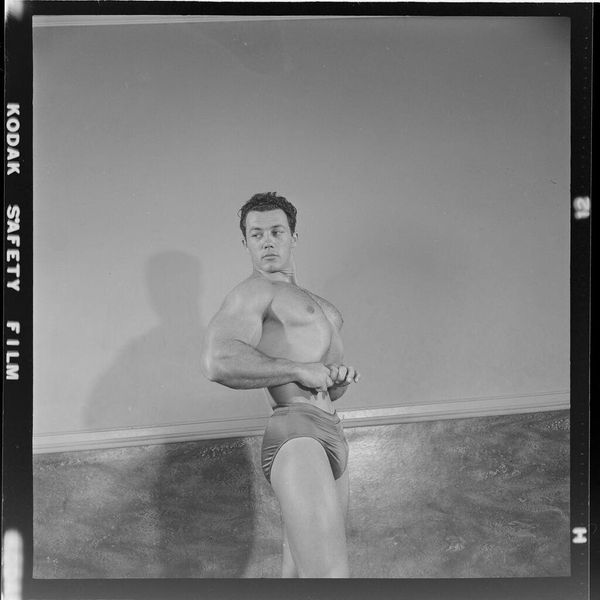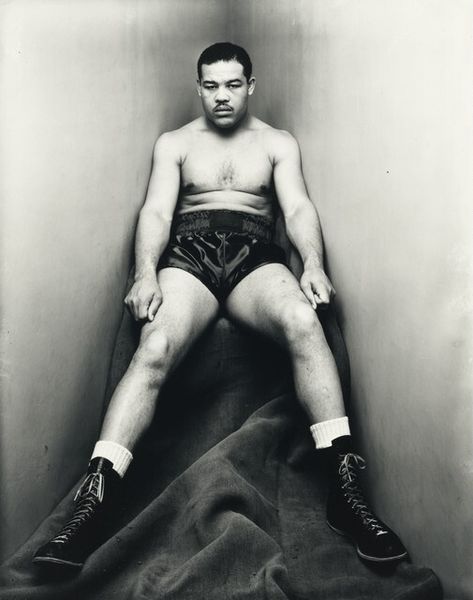
Dimensions: image: 291 x 289 mm
Copyright: © Akram Zaatari, courtesy Hashem el Madani and Arab Image Foundation, Beirut | CC-BY-NC-ND 4.0 DEED, Photo: Tate
Editor: Here we have Akram Zaatari’s photograph "Reesh. Studio Shehrazade, Saida, Lebanon, late 1960s. Hashem el Madani", currently held at the Tate. The composition is quite striking, isn't it? What's your initial interpretation of this work? Curator: It whispers tales of performativity and the studio's gaze, doesn’t it? Hashem el Madani, through Zaatari’s lens, seems to both embrace and question traditional notions of masculinity. The black and white softens the image, giving a nostalgic quality, but the subject's pose feels like a defiant statement. Editor: Defiant, that's interesting. Do you think the setting of Studio Shehrazade adds another layer? Curator: Absolutely! It's a space where identities are crafted and commodified. Madani is not just portraying a bodybuilder; he's engaging with a specific cultural context, perhaps challenging or reinforcing societal expectations. What do you take away from it? Editor: I see now it's not just a portrait, it’s an exploration of identity. Thanks for sharing your perspective. Curator: Indeed. Art invites us to see beyond the surface, to unravel stories woven within images.
Comments
tate 10 months ago
⋮
http://www.tate.org.uk/art/artworks/zaatari-reesh-studio-shehrazade-saida-lebanon-late-1960s-hashem-el-madani-p79468
Join the conversation
Join millions of artists and users on Artera today and experience the ultimate creative platform.
tate 10 months ago
⋮
“Men in general used to like showing their muscles. This man’s nephew, is the now-famous Lebanese singer Fadel Shaker.” Gallery label, June 2011
